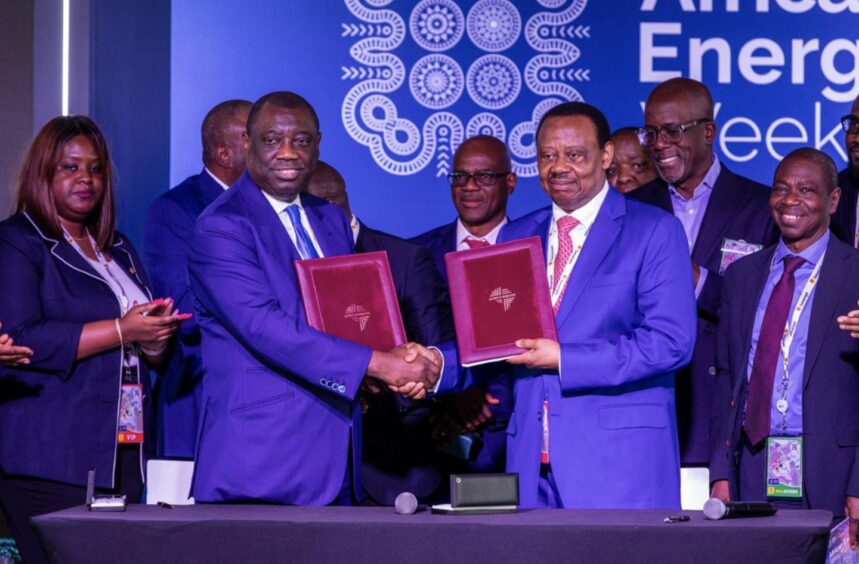
Afreximbank has agreed to provide $600 million in financing to Nigeria’s Amni International Petroleum Development.
The two parties signed the memorandum of understanding (MoU) at the ongoing Africa Energy Week in Cape Town.
There has been considerable discussion at the event around the challenges of financing new ventures in Africa.
Under the agreement, Afreximbank agreed to provide a syndicated reserve-based lending (RBL) facility.
Amni chairman and CEO Tunde Afolabi signed the MoU with Afreximbank’s head of client relations Rene Awambeng.
The two agreed that the RBL would go to supporting the energy transition.
The statement went on to say the lack of financial support was one factor hindering Africa’s oil and gas industry.
“The MoU will enable critical industry challenges to be addressed and to enhance operations across the entire energy value chain,” it said.
Amni has two producing assets offshore Nigeria, the Ima field, which straddles the OML 112 and OML 117 border, and Okoro in OML 112. It also has the Tubu field, on OML 52, which was due to start up this year.
Afreximbank has shown interest in a number of oil and gas projects in West Africa. In July, for instance, it signed up to help finance UTM Offshore’s plans for a floating LNG (FLNG) project in Nigeria.
This followed an agreement in May where the bank said it would work with the African Petroleum Producers’ Organisation (APPO) in the creation of an energy transition bank focused on the continent.
Entrance and expansion
Afreximbank president Benedict Oramah also signed an MoU with the African Energy Chamber (AEC), represented by executive chairman NJ Ayuk. The deal aims to increase private sector and service company participation.
The AEC said it would lead “various mechanisms aimed at simplifying the entrance and expansion of financial institutions”.
Ayuk said the MoU would “get guys working on mini grids and local service and financing companies and get them into boosting industry growth”.
Oramah said the AEC was a “connecting voice that is courageous, that is not afraid to say what we want to say to others, that has an intellectual depth and capacity to do research. As we launch the African Energy Bank, we look at the AEC becoming part of the instrument which we will use finance to change the course of history regarding the way energy access is on the continent.”
Demand for finance is high in the region.
Sahara Group director Temitope Shonubi said finance was the “biggest problem” the company faces.
“I see the entire region growing based on regional integration. But again, this will depend on finance. We need finance and if we don’t have it, it won’t work,” Shonubi said.
